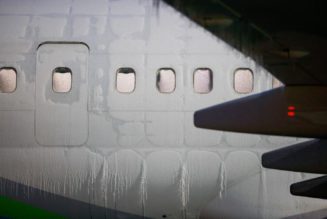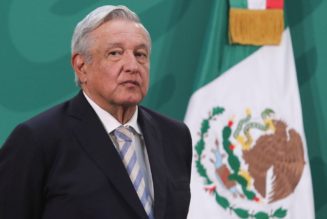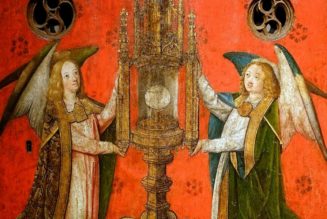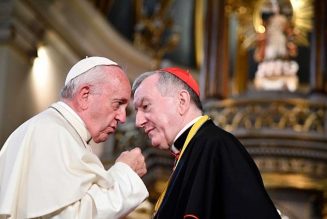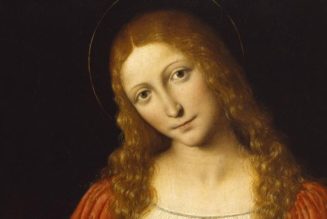By Fr. Jerry Pokorsky ( bio – articles – email ) | Aug 14, 2023
Our daily duties are necessarily practical. We make money for a living. We feed our kids. We go on vacations. We’re usually not conscious of the little mysteries in our day-to-day duties. We strive to live functional, productive lives. We also have emotional encounters in daily life. We enjoy the thrill of roller coasters at summer amusement parks. Our bodies react to the excitement of an action film with adrenaline. Practical expectations mix with tidbits of the extraordinary to make up our lives.
Despite conventional wisdom, man has never been able to control the winds and the sea. The account of Jesus walking on the water confirms His divinity after the miraculous multiplication of the loaves and evokes the response of faith. The stroll of Jesus on the turbulent waters offers a variety of practical religious lessons.
The sea is ambivalent. The waters and its creatures sustain us. But the violence of the weather and the sea monsters threaten our lives. Only the Lord is mightier than the waters, our Guide and Protector: “Mightier than the thunders of many waters, mightier than the waves of the sea, the Lord on high is mighty!” (Ps. 93:4) “We walk by faith, not by sight.” (2 Cor. 5:7) We need faith in Jesus and His saving power to navigate the choppy waters of this life. “Even though I walk through the valley of the shadow of death, I fear no evil; for thou art with me.” (Ps. 23:4) Peter and his papal successors fail without faith in Jesus the Lord.
These religious lessons offer consoling advice during times of uncertainty and the contemporary assaults on the faith—including from sources near the heart of the Church. “Stand firm and hold to the traditions which you were taught; hold fast to the faith!” (2 Thes. 2:15)
The life and ministry of Jesus provide further details. We see metaphors to help us understand how Jesus fulfills the Law and the Prophets. We appreciate insights that apply the truths of His teaching to the circumstances of our lives. The compatibility of faith and reason strengthens our convictions.
The Mass also has its practical components. The Mass is the “source and summit” of all prayer. Believing Catholics don’t want to miss the action. A pastor receives common complaints: We can’t hear the priest. His sermons are too long. Isn’t there a cry room? How can we fulfill our duty to worship with all the distractions? We can’t change channels like we could back in the good old days of Covid and live-streaming. (There’s nothing like a live-stream Mass with morning oatmeal.)
The Mass is rooted in Jewish history and worship. The Liturgy of the Word fulfills the worship of the synagogue. The Liturgy of the Eucharist replaces the Temple of Sacrifice and re-presents the one sacrifice of Jesus. By the 4th century, the Church in the West translated the Mass into Latin, the dominant language of the day. Certain words, such as Kyrie Eielson and Amen, maintain links to Greek and Hebrew. The ritual of the Mass—always ancient, always new—is a vessel of Catholic worship that unifies history and all cultures.
After centuries of Latin (in the Western Church), Vatican II permitted the translation of Mass to various language groups. The so-called vernacularization of the Mass has mixed results. We recite parts of the Mass in common, such as the “I Confess,” the “Glory to God,” the “Our Father,” and the “Lamb of God.” However, we often miss, or gloss over, the meaning of these prayers and realize that the Mass is more than the multiplication of words.
It is impossible fully to grasp the rich meaning of the prayers of the Mass as it unfolds. We’re not liturgical academicians, so we give up. Our distractions tempt us to demand—and often receive—liturgical gimmicks. So priests and bishops all too often “jazz up” the Mass to soothe disengaged boredom and feed clerical narcissism. But beyond these unfortunate anomalies, the Church—almost unconsciously—orchestrates the awe of our encounter with the Divine with the simplicity of ordinary ritual.
Holy distractions enhance our worship. A devout thought or impression may occupy us as the Mass moves on. The Church envisions such pious distractions as prayer. As individuals and in the assembly, we encounter the mystery of the Mass in the chaos of our humanity—mind, memory, imagination, and emotions. Mass is like the controlled violence of a nuclear power plant that generates the electricity that powers a municipality. The Mass is filled with awe.
But our sense of awe is extraordinary. When Jesus walked on the water, the Apostles were stunned by the spectacle. When Moses spoke to God “face to face,” his face glowed with God’s glory. When the Holy Spirit descended on the Apostles in fiery tongues, the Spirit mysteriously gripped and transformed their existence. The scenes reveal the astonishing sense of the mysterious presence of the Divine.
We encounter the Divine at Mass. The ritual of the Mass prompts us to expand the horizons of mystery. We have signs and symbols to lift our hearts beyond the rational: bread and wine, incense, and the ritual gestures of priests and people: “Lift up your hearts.” “We have lifted them up to the Lord.” (Preface of the Mass). God is not in the strong wind, earthquakes, fires, and dysfunctional sound systems. We find the Lord in the “still small voice” (1 Kings 19:12) of our Eucharistic encounter.
Despite the turmoil of our lives, we emerge from the Mass, satisfied that we have fulfilled our routine obligation to honor the Third Commandment. But our liturgical routines are inseparable from the extraordinary. The Mass elevates ordinary encounters and lessons to the domain of heavenly glory. “The heavens are telling the glory of God.” (Ps. 19:1)
An elderly Catholic recalls that her devout mother told her eleven children over seventy-five years ago that if they ever doubted the existence of God, look at the sky.
Sound Off! CatholicCulture.org supporters weigh in.
All comments are moderated. To lighten our editing burden, only current donors are allowed to Sound Off. If you are a current donor, log in to see the comment form; otherwise please support our work, and Sound Off!

There are no comments yet for this item.



